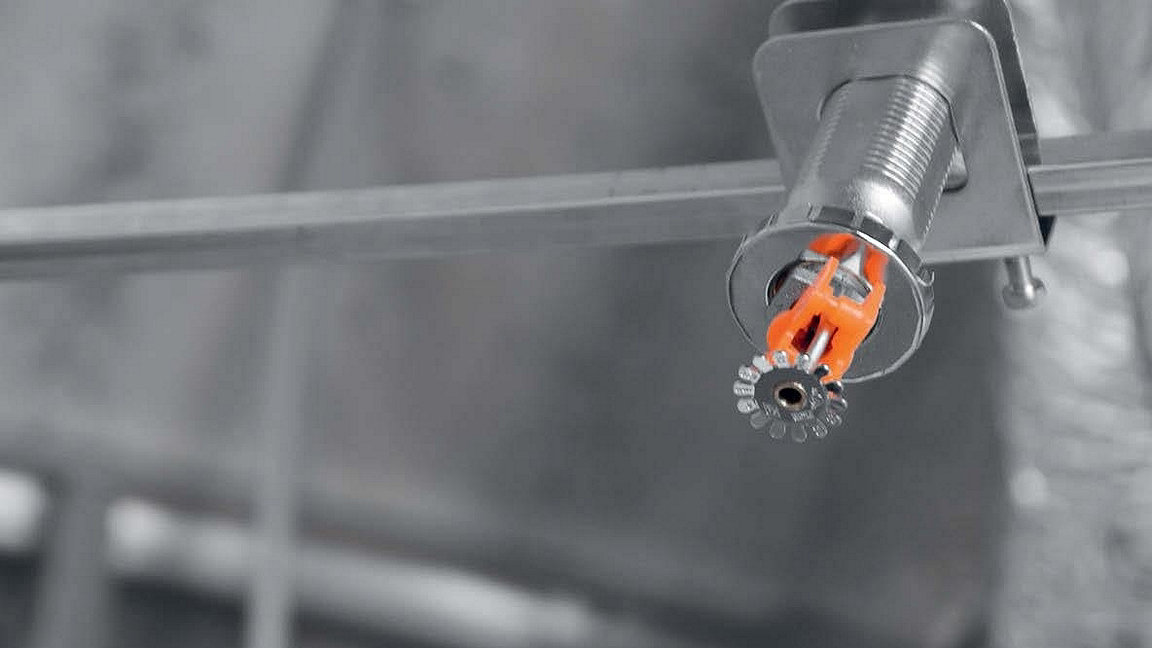
There are around 1,000 fires in schools annually in the UK. Larger fires may cause damage in excess of £3m and in some cases more than £20m. Although there were no fatalities from such fires between 2010 and 2018, there were 244 casualties, according to official figures.
These also show that out of 673 schools built in the UK since 2011, only 15 per cent were fitted with sprinkler systems, although the evidence from the National Fire Chiefs Council suggests that where they have been activated, they are 99 per cent successful in putting out fires. Zurich Insurance has recently published results of its risk management survey of 1,000 UK schools which shows that 67 per cent of English schools are rated as 'poor' for fire protection systems.
"RICS supports the mandatory use of sprinklers in schools"
Besides these worrying statistics, it has become obvious there is a huge discrepancy between fire risk management in schools across England and Scotland, with the UK's southern region the least safe.
In Scotland, where sprinkler systems are legally required in all new and major refurbished schools 29 per cent are rated as 'excellent' for fixed fire protection systems. Conversely, in English schools only five per cent achieved the same rating. Zurich's study claims that the five biggest fire risks in schools are lack of fixed fire protection – including sprinklers – building combustibility and modern methods of construction, poor fire detection and arson, as well as housekeeping and smoking controls.
To demonstrate the impact that sprinkler systems can have, Zurich includes a case study from London where a fire started in a laser cutting machine in an unattended computer-aided design (CAD) room on the second floor. The sprinkler system successfully controlled and suppressed the blaze. Direct fire damage was confined to the CAD room and adjoining IT services room with smoke contamination only, resulting in a £100,000 claim and no major disruption to the school community.
This can be compared to another case which cost around ££17m to rectify. A fire broke out in the middle of the night following an electrical fault in one of the appliances in a school kitchen in Doncaster. The fire spread rapidly due to the use of combustible construction materials; at its height, it was tackled by more than 60 firefighters. The fire service was only successful in isolating and saving the gym and sports buildings and limited single-storey parts of the library and administration areas. More than 80 per cent of the buildings on site were destroyed.
Preventative action, and the removal of combustible materials, could eliminate the impact of loss and disruption to the community, and significantly reduce the cost of repairs. Zurich has again asked the UK government to regulate and provide improved guidance, which clearly requires the mandatory implementation of sprinklers in all new-build and major refurbished schools. A change in government legislation to make sprinklers in schools mandatory could help protect children – they often confine the fire to the room of origin if it occurs out of school hours. This minimises the damage caused, and the months or years of disruption to children's education while the school is repaired.
Gary Strong RICS global building standards director ,comments: "RICS supports the mandatory use of sprinklers in schools ,to protect buildings from significant damage and disruption during rebuilding, and to protect the lives of firefighters carrying out search and rescue operations. In May 2019, RICS responded to the Department for Education consultation on BB100 Design for Fire Safety in Schools with our views."
Related competencies: Fire safety
BUILT ENVIRONMENT JOURNAL
Sandra Ashcroft 14 May 2024
BUILT ENVIRONMENT JOURNAL
Gareth Howlett 08 May 2024
BUILT ENVIRONMENT JOURNAL
Sally Friswell 03 May 2024